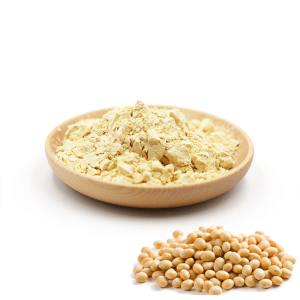
# Soy Fiber: A Sustainable and Nutritious Dietary Supplement
## Introduction to Soy Fiber
Soy fiber, derived from the soybean plant, has gained significant attention in recent years as a sustainable and nutritious dietary supplement. As consumers become more health-conscious and environmentally aware, soy fiber presents an excellent alternative to traditional fiber sources. This plant-based ingredient not only supports digestive health but also aligns with the growing demand for eco-friendly food options.
## The Nutritional Benefits of Soy Fiber
Soy fiber offers numerous health benefits that make it stand out among other dietary fibers:
– Rich in both soluble and insoluble fiber
– Supports healthy digestion and regular bowel movements
Keyword: Soy Fiber
– Helps maintain healthy cholesterol levels
– Promotes satiety and weight management
– Low in calories and fat-free
Unlike some other fiber sources, soy fiber contains all essential amino acids, making it a complete protein source as well. This dual benefit of fiber and protein makes it particularly valuable for vegetarians and vegans.
## Environmental Advantages of Soy Fiber Production
The sustainability of soy fiber production is one of its most compelling features:
– Soybeans require less water than many other crops
– They enrich the soil with nitrogen, reducing the need for synthetic fertilizers
– Soy cultivation produces lower greenhouse gas emissions compared to animal-based protein sources
– The entire soybean can be utilized, minimizing waste
As global concerns about food sustainability grow, soy fiber offers a responsible choice for consumers who want to reduce their environmental footprint without compromising nutrition.
## Incorporating Soy Fiber into Your Diet
Adding soy fiber to your daily routine is simple and versatile:
– Mix soy fiber powder into smoothies or shakes
– Use it as a baking ingredient in breads, muffins, or pancakes
– Sprinkle it over cereals or yogurt
– Incorporate it into soups or sauces as a thickener
Many food manufacturers are now including soy fiber in products like protein bars, cereals, and meat alternatives, making it even more accessible to consumers.
## Potential Considerations
While soy fiber is generally safe for most people, there are a few considerations:
– Individuals with soy allergies should avoid soy fiber
– Some people may experience mild digestive discomfort when first increasing fiber intake
– It’s important to drink plenty of water when consuming additional fiber
As with any dietary change, it’s advisable to consult with a healthcare professional, especially for those with specific health conditions or concerns.
## The Future of Soy Fiber
With increasing awareness of both health and environmental issues, the demand for soy fiber is expected to grow. Researchers continue to explore new applications and benefits of this versatile ingredient. As food technology advances, we can anticipate even more innovative ways to incorporate soy fiber into our diets while supporting sustainable agriculture practices.
Whether you’re looking to improve your digestive health, manage your weight, or make more environmentally conscious food choices, soy fiber offers a practical and nutritious solution worth considering.
